I made it. Summer break. Whew. My clean up at the end of this school year wasn’t the typical ((shove it in the closet and deal with it next year)) kind of clean up.
It was more like… holy cow you’re starting a new job next year so you have to take all this stuff you’ve accumulated with you….
So I drove it to my mom’s barn to store it for the summer! I decided to make a change in districts this year. I had to say a lot of bittersweet goodbyes after 3 years. I had the best students, parents, co-workers and friends in my old district. It was seriously the best place to start my SLP career. Making a change is always really hard for me. Just when I was feeling un-easy about it I opened a package and found two of these cards tucked in a candle holder. It was a random raffle package that I won.
This immediately made me feel like 1000 lb. got lifted off my shoulders. It also made me break out my ugly cry in the middle of the school day. Once I pulled it together, I taped it to my wall and finished out the last two months of school. Now that I’m on summer vacay I thought I’d do a little reflecting on the fact that I’ve learned about 1023498435 things in the last 3 years that I could never have learned in graduate school. If you’re a CF starting a new job here are some of the best lessons I learned in the last few years at my first SLP job:
1. Be kind. To everyone. Everyday. Learn everyone’s names. Thank your secretaries, clerks and custodians as many times as you can. Seriously be nice and things will go a lot easier.
2. Go out of your way to connect with families. There are a lot of reasons this is important. You won’t get the full picture of your student’s life if you don’t know something about their family and their life outside the school day. Your parents will be much more likely to buy-in to your homework plans and carryover if you’ve made a personal connection with them. Lastly, you are taking care of their baby. The most precious thing to them in the whole word. If you’re working with their 3 year old they will feel so much better if they know who the heck you are!
3. Don’t procrastinate. You’ll need help and there is no getting around that. If you are writing an IEP at home at 9 pm for an 8am meeting and then the printer doesn’t work, you won’t have time to make other arrangements.
4. Be a team player. Bite the bullet and volunteer to do things that take extra time. If you have a talent use it to help others. For example, whipping up visuals is super easy for me. Even when a student isn’t on my caseload, I often make up data sheets or visual posters to support students going through our RtI program. Your team will appreciate your talents and you will be able to ask your team to help you with their specific talents.
5. Think generalization from day one. Ask your student’s teacher what is the ONE thing you can work on to make the biggest difference in the classroom.
6. If you make a mistake, admit it and find a way to solve it. Then don’t make that mistake again. You’re going to make mistakes, so be gracious when you do!
7. Ask for help, but do your own research first. Your co-workers and administrators will be willing to help as you get to know the paperwork. If you can, do the research yourself and spend the time to try to solve problems yourself before you check in for help.
8. You aren’t done learning. Get involved with ASHA, blogs, conferences, whatever it takes. When a kiddo comes along and you haven’t seen that disorder before, get busy researching.
9. There’s nothing worse than being out of compliance or completing paperwork incorrectly. Your supervisors might not see how great your therapy is everyday, but the minute you’re out of compliance they will notice. The take home message? Get organized early. Double check your dates and get with your teachers, clerks and intervention specialists. Get yourself organized before you get busy decorating that cute therapy office!
10 Adovcate for all things Speech and Language in your buildings. You might even need to advocate for new ideas within the SLPs in your district. Speak up when you have a good idea, but remember that you’re new. Sometimes it pays to be quiet and listen to what seasoned SLPs have to say. They seriously know so much!
11. Document, document, and document. Remember, if you don’t document it, it didn’t happen.
12. You’re just one fish in the sea. Remember that when it comes to scheduling, therapy time, etc. everyone needs ‘time’ with the students. Work with your team. Just get over the fact that you think you’re done with your schedule the first time. It will change monthly if not weekly.
After I wrote about half of these I decided to ask my SLP blogging friends what they would share as their biggest lessons from their first jobs. Here’s what they said….
Be flexible! Schedules change constantly in the school setting and it pays to just ”roll with it!’ Oh and use TPT (especially the free stuff) while you get started! – Nicole Allison
In my CF I learned so much more from the OTs! My advice is to get to know the other disciplines and learn as much as you can from them! – Carrie Manchester
You may think you learned a lot in school, but you will learn just as much ‘real-world’ knowledge in your first years on the job. There will be more meetings and paperwork than you ever dream of. Make friends with the secretaries and janitors – cookies at Christmas time are always a good idea. – Natalie Snyders
Think outside the box. Being creative is a necessity when all the standard methods aren’t working. And back up everything on a thumb drive! – Maureen Wilson
Yes! And back up your thumb drive to Dropbox – Carrie (haha I loved this one)
Try to work with the OT/PTs as much as you can… either school or medical settings. You will learn a ton from them! -Kristin Minden
You’re not going to have all the answers! Tips and tricks will come with practice. Be sure you have reliable professions around you that can answer your questions or point you in the right direction. -Lauren LaCour
Some administrators will put speech therapy at the very bottom of their list of priorities. It isn’t like graduate school where you are surrounded with individuals who understand and value all that you do. Special Ed. teachers can be a great help when learning the IEP process. If your first job isn’t a positive work environment and isn’t a good fit for you – don’t stay! – Courtney Gragg
Get to know the teachers and their quirks, Teacher will probably think you have an easy job because you don’t have a classroom. – Patti Bohlman
Don’t get prideful and think you know more than the teachers or veteran speechies. Be respectful of the teacher’s classroom if you want a good working relationship and be willing to compromise. – Felice Clark
Learn the curriculum your school is using. It will help your kids SO much. It’s also your ob to be present in your building and education others. Many people won’t be familiar with what you do. Advocate for your kids and profession. So many doors will open when you start making those connections with staff members. -Jenn Alcorn
It’s ok to ask for help. It’s important to work together as a team… there is no I in team! Also make sure you learn the ‘culture’ of the building. Find out who to be friends with and who you can trust! – Miss Speechie
What do you remember as the most important things you learned in your first SLP job?
Join the SRN newsletter!

I'm so glad you stopped by! If you'd like to keep up with the newest posts and get exclusive free downloads, please sign up for the newsletter! Your first freebie is ready as soon as you subscribe and confirm your email!
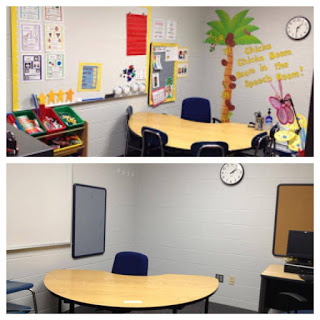
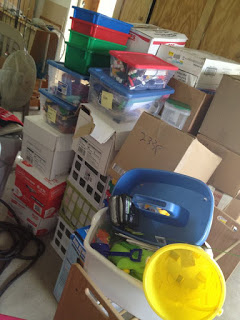
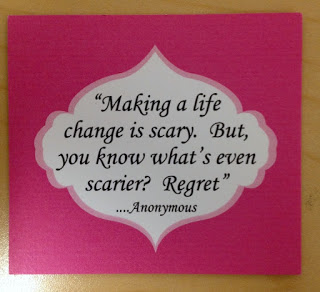
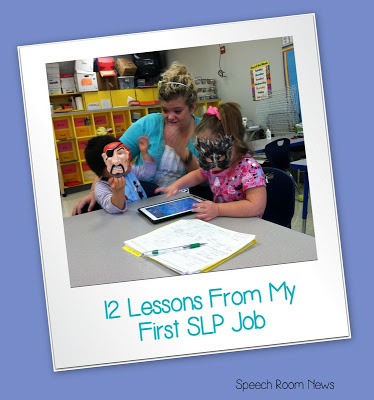
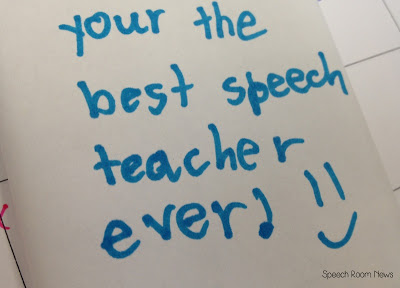

I’m sure your little kiddos are going to miss this best “speech teacher!” Lots of hugs and wishes as you pursue your next job!
Allison’s Speech Peeps
Thanks Nicole!
I’ve changed districts before (and then made my way back) and it was not an easy change either, but I learned a lot along the way. Good luck on your new adventure!
Thanks for the support Jenn! I’m excited for the new adventure!
I loved reading this article, especially because last year I went through the same exact situation- switched districts after 3 years in my first district. Your lessons were perfect, I agreed with all of them! One lesson I learned is that communication is key! Communicate frequently, with teachers, administrators, parents, other specialists, etc. I learned that the more you keep everyone in the loop, and the more you check in with people, the more smoothly everything (especially IEP meetings) goes!
oh communication is so right! That could be #1!! Thanks for reading!
Great advice! I am leaving my first SLP job after 6 years, and even though it is scary, I’m ready and excited for the changes ahead! Good luck in your new job!
We’re in the same boat! Goodluck Kate!
I’m just getting ready to start my CFY in August and I’m a bit nervous about it. I’ll be working in a tough district! Thanks so much for the wonderful words of advice and good luck with your new district. I’m sure you are making the right move.
Goodluck!
Jenna,
This is wonderful! I work for a private company and we always have several CFs start every August. I would love to include your list of lessons in our training materials, but only with your permission and attributed to you. Would that be ok?
Thanks,
Beth
Sure Beth! Please just give me credit! Thanks!
What’s the new adventure!?
Thanks for sharing the list of things you learned! As someone looking for their CF position, it is very helpful!
Awesome list and post! Thanks for the shout out!
-Miss Speechie
http://speechtimefun.blogspot.com/
Well said! Good luck in your new position!
Everything you’ve said is true!
I’m finishing up my second year as an SLP – but I’m staying with my district (just moving schools). Here is what I’ve learned:
You’re straight out graduate school and won’t be perfect. Don’t sweat the small stuff and do your best. If you’re not doing great in one area, brainstorm what you can do differently to fix that problem area.
Ask for help and volunteer to help. People will be very willing to help you if you are willing to give your time and help others.
It’s okay to to go to your supervisor AFTER your CF year is done! Especially when you have difficult cases or have a question about something that doesn’t happen every day.
Be professional and take the highroad. If you’re non-confrontational like me, just do your best if someone gets catty and mean. There’s going to be some kind of drama no matter where you go – just keep your chin up and handle it professionally, even if the other person is acting like they’re in high school.
If you see a safety concern, report it. You’re liable if those children get hurt and you didn’t try to prevent it.
If you have bilingual students and you’re not bilingual, go to any lengths you can to get an interpreter – be it a professional, parent liaison, or older student. Research shows that services provided in their dominant language brings about the most change.
Great post…love’d reading this. It brings me back to what is important during this crazy end of the year time! Thank you…
I love that your number 1 is be kind. Seriously, it makes a big difference! Add to that smile, say good morning, hello, please, and thank you. Don’t get caught up in petty gossip. You life will be better for it. Lol. Thanks for the shout out and good luck with your new job! I know you’ll be a-mazing!
Lauren
Busy Bee Speech
Great post, very well said! I think the best think I learned very early on was to be humble and that it is ok to say “I don’t know but I’ll look into it.” Teachers, parents, etc. want to know we are hearing their concerns and taking them seriously. But they don’t expect us to be an expert on every single topic. It is much better to be honest and say we don’t know than to try and fudge our way through a response. I was always very honest with my parents and colleagues and I think they were very thankful that I didn’t present myself as “all knowing”. Good luck on your move! The school district that is getting you should know how very lucky they are to have you!!! Happy summer!
Excellent post! Especially #5 Generalize – Worksheets to real world. Functional approach. and #11 – I have surprised myself many times with well-written documentation when I’ve needed to refer back. There’s no such thing as “too many words” for SLP’s! Thank you and good luck!
As a 21 one year seasoned vet, all your ideas apply to the entire career span. I would add, especially if you are in the classroom working, be willing to junk your specific plans for that time if an emergency or “issue” comes up–it helps all students and opens up the road to asking that teacher to adapt or modify if needed. I have a great relationship with my kdgtn teacher because of all the times I took over her small group when someone didn’t make it to the bathroom on time! I didn’t always do everything she would have, but I tried and I earned respect for that….Be willing to step outside of your skills box!
Also, as Erik Raj has written, make a point to share “yippee” moments with parents, staff etc….both without and with the student present. It encourages everyone!
I also read that someone said to keep in contact with your CF mentor. As a mentor of 5 CF’s in 3 years, PLEASE Keep in touch!! You guys are coming out of college with the most up to date info–I learn as much from listening to a CF talk through an issue as I give to the CF!! It’s definitely a 2-way street!
Above all, always find something to smile and giggle about with at least one student each day. That is what is rewarding–time with the kiddos. (NOT PAPERWORK!!)
Ditto to the comment above! After 27+ years in this profession, many, if not all of the things you’ve learned will help you in the years to come! #1, being kind to all, will get you far and you’ll be amazed at what people will do for you “in a pinch” if you’ve been kind and helpful without being asked. Good luck!
Thank you for this post! I will be starting my CFY this year and all the above advice has been taken to heart.
I have been an slp since 1983. During my CFY year, I prided myself on planning unique lessons for each of my students. I spent hours planning (not to mention doing paperwork) and stacked my materials, in order of use, beside my chair at the beginning of each day. When my supervisor observed, she said, “Why are you doing this? Choose one material and think of a unique way to use it with each child.” That certainly saved a lot of time! Your first year will be a feat of organization. It does get easier.
That must have been a real game changer!! As a fellow (recovering) “type A” – I can relate – I buy into the idea that we need specific material for each student. What a lot of work that is! Yet, it’s not easy to let go of the idea that more is more. Using the same/similar materials with various language clients (for example) also gets us to think deeply about language acquisition stages and processes more deeply.
It’s good to hear that you’re able to enumerate things you’ve learned from your teaching. Honestly, it’s not always the children who gain more knowledge from the school, but the teachers as well. In fact, we are the ones who learn a lot! Especially those who had great moments they shared with you.
BarracudaStaffing.com